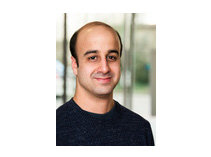Project overview Joint Funding
SI-SARS-CoV2 (Immune responses to SARS-CoV-2)
Program: Funding Line: strategic initiative Project type: research project Entity: COVID-19, multiple entities Status: completed
Strategic initiative: Immune responses to SARS-CoV-2 and the tumor in cancer patients with COVID-19 - implications for clinical outcomes
Researchers from the University Hospitals of Freiburg and Munich have extensively studied antibody formation and T cell response against different variants of SARS-CoV-2 in 60 patients with hematological diseases, in particular lymphoma and multiple myeloma, after 3 consecutive vaccinations with one of the approved COVID-19 vaccines. The researchers were able to demonstrate that although the quantity of SARS-CoV-2 specific antibodies was decreased after vaccination in the hematologic patients compared to a healthy control cohort, the avidity, i.e., the ability of the formed antibodies to bind to the virus, was increased. Furthermore, T cell analyses showed that even in patients who did not form antibodies after vaccination, a SARS-CoV-2 specific T cell response could be induced. Based on these results the researchers thus concluded that there is presumably a protection against severe courses of COVID-19 in this vulnerable patient cohort, even in the absence of IgG antibodies against SARS-CoV-2.
Researchers from Essen discovered that tumor-reactive tumor-infiltrating lymphocytes increased after a SARS-CoV-2 infection in some cancer patients. Biosamples for that project were provided from Heidelberg, Freiburg and Munich.
Involved Partnersites
Essen/Dusseldorf, Freiburg, Heidelberg, MunichCoordinators
